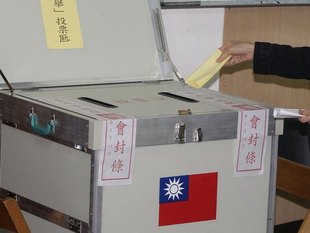
Panel speakers will include Dennis Weng, visiting assistant professor of political science at Wesleyan University; Thomas Fingar, a Distinguished Fellow at the Asia-Pacific Research Center in the Freeman Spogli Institute at Stanford University; Winnie Lin, a Stanford undergraduate; and me. Some context on the elections follows.
In recent years, on the other hand, the trend has been toward consolidation. A set of amendments in 2005 changed the legislative term length from three to four years to coincide with the presidential term, and starting in 2012 both elections were held on the same day, creating a single national election every four years. The National Assembly was abolished in the same reform. Then county and county-level city terms were temporarily extended to align with the election cycle of the special municipalities of Taipei and Kaohsiung, for the first time creating a single local election day:
The races to be decided in the 2014 election:
- (1) Mayors and (2) city councilors in centrally-administered municipalities (直轄市市長,市議員) for Taipei, Kaohsiung, New Taipei City, Taichung, and Taoyuan);
- (3) Executives and (4) councilors in counties and county-level municipalities (縣/省轄市長,縣/市議員);
- (5) Township and town heads and (6) councilors (鄉/鎮長,鄉/鎮議員);
- (7) Village and ward heads (村/里長).
In addition, about 25 township-level jurisdictions with significant "mountain aborigine" populations hold special status as "self-governing" areas (自治區). In a nod to the special status of aborigines in Taiwan, local government laws require that the township heads in these areas be aborigine. This became a point of some contestation after several counties (Taipei County, Taichung City and County, and Kaohsiung City and County) were merged and raised to centrally-administered municipality status in 2009. As part of this reform, townships and towns in these areas became districts (區), which have appointed, not elected, leaders. As a consequence, several self-governing townships lost the right to elect their leaders--Wulai Township, a popular tourist destination a short trip south of Taipei, was one.
In December 2013 the Legislative Yuan passed an amendment to restore the right to elect the leaders and councilors of these former townships. As a consequence, two more elections were added:
- (8) Self-governing district heads and (9) representatives (自治區長,區代表).
So that's how they got to "9-in-1".
 RSS Feed
RSS Feed
